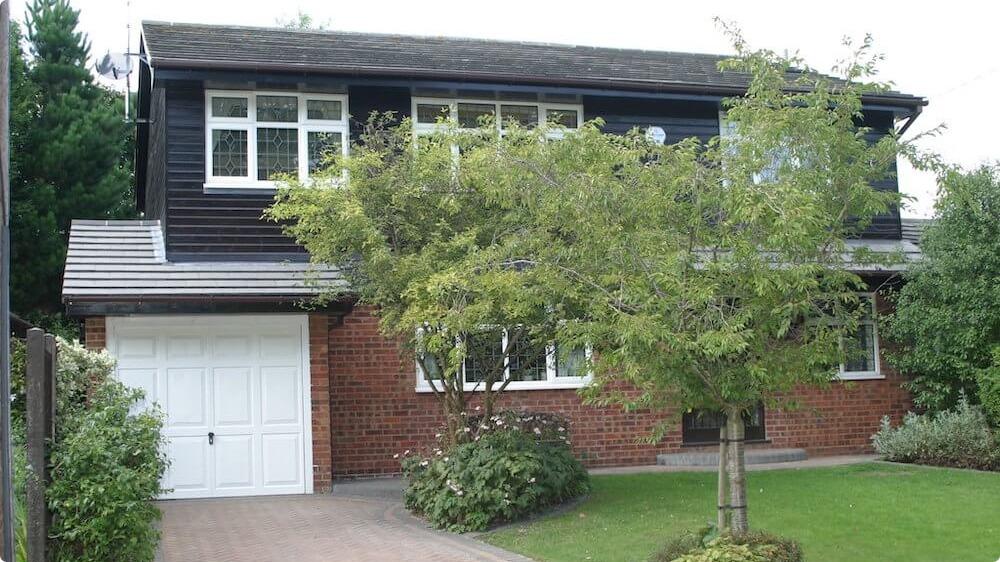Whether you’re extending your garage on the ground floor or adding a new storey on top, there will be one thing on your mind: will I be able to get planning permission for my garage extension?
As with a lot of extensions, your project will either come under permitted development rights or traditional planning permission. So, how to figure out into which box your garage extension falls? If you’ve found yourself scratching your home, then you’ve come to the right place. This guide will cover common garage extensions and their associated planning rules - plus much more!
Want tailored planning advice? Resi is the UK’s leading home extension platform, so we know all about the ins and outs. Book a free consultation with our team here.
Are you covered by permitted development?
There are two planning routes your project could go down: a full planning application for your garage extension or permitted development.
While full planning gives the most creative freedom, permitted development rights remove subjectivity from the process. As long as your designs fit within the guidelines, your council has to give you approval - no matter how notoriously strict they are.
Permitted development rights tend to suit more conservative projects, so if you’ve got a modest extension in mind, this could be the planning route for you. However, not all homes qualify for the scheme.
Properties that are excluded from permitted development rights…
- Flats
- Maisonettes
- Listed buildings
Homes within ‘designated areas’ will either find their rights limited or suspended, and some new builds can also have limited options.
- Designated areas include…
- Conservation Areas
- National Parks
- Areas of Outstanding Natural Beauty
- World Heritage Sites
- Norfolk or Suffolk Broads
Are you affected by an Article 4 direction?
One thing worth checking is whether or not your property is affected by an Article 4 direction. This is where the council or (in rare cases) the Secretary of State has withdrawn specified permitted development rights across a defined area.
Article 4 is usually in effect in conservation areas but sometimes has been expanded to areas outside of this. If affected by Article 4, don’t panic. You can still extend your garage, but you’ll just need to apply for planning permission before you begin.
To find out whether Article 4 may affect your project, you can either reach out to your local authority for advice or discuss your project with a planning expert.
How big a garage extension can be without planning permission
Once you’ve worked out whether or not your home qualifies for permitted development, you can start planning your garage extension. Design guidelines for this planning route are strict, so we always recommend you work with an experienced designer to make sure your project hits the mark.
However, if you’re in the early stages and want a rough idea of the possibilities, here are the figures you’ll want to consider.

A utility room added to a kitchen through a garage extension.
How much land can be used for the garage extension?
Under permitted development rights, no extension can take up more than half the area of land around the “original house”.
In this context, original house refers to how the building existed either at inception or, in the case of period properties, as it existed on 1st July 1948.
This means, that if an outbuilding is present or the property has already been extended, your land allowance may have already been used up. This could be an issue if you plan on extending your garage on a ground-floor level.
How far back can a garage extension go?
If you’re pursuing the permitted development route, you’ll find your size allowance affected by your property type.
- Detached properties can extend to the rear up to 8m
- Other property types can extend by 6m
However, if you are extending your garage by a significant amount (more than 4ms for detached or 3ms for other households), then you’ll need to apply for prior approval.
What’s more, if you plan on adding another storey to your garage, you must make sure your extension doesn’t extend beyond the rear wall of the original house by more than three metres.
How high can a garage extension be without planning permission?
The height of your garage extension will depend on the project type.
For instance, any ground floor extension to your garage, must not exceed the maximum height of 4m (eaves at 2.5m).
If you plan on adding a new storey to your garage, and your project still qualifies for permitted development, then your two-storey extension must not be taller than the existing house eaves.
Notable exceptions: both detached garages and side garages will be unable to add an additional storey under permitted development rights. Only rear extensions qualify for this planning route. However, you will still be able to make a traditional planning application.

An exterior shot of an extension partly over a garage. Photo by Brian Snelson.
Can I add another storey to my property?
If your garage extension is part of a large project, such as adding a new storey to a bungalow, then you’ll be happy to know that this can still come under your permitted development rights.
Some key design considerations to bear in mind…
- Only one storey can be added to a single storey house
- The total height of the house cannot exceed more than 18 metres
- Each new storey must be less than 3.5 metres in height
- If your property is not detached, then your home must remain less than 3.5 metres taller than the next highest building
However, as with larger rear extensions, a new storey will require a prior approval application.
Important to note: any detached garage will have to remain one storey if you want it to still come under permitted development rights.
Lawful development certificates
While permitted development rights mean you can forego a full planning application, you should still get formal documentation that your build was legal at the time of construction.
Otherwise, if the rules change, you may have a hard time proving to future buyers that your extension isn’t a legal/safety risk.
A lawful development certificate can be obtained through your local planning department and typically takes 8 weeks to be completed. Some architecture services (such as Resi) will handle this planning process on your behalf, giving your garage extension the best chance of success.
Prior approval and garage extensions
If you’re adding a large rear extension or an additional storey, in these scenarios you will need to apply for prior approval before construction begins.
This process allows your local authority to consider your designs and assess their potential impact on your surrounding areas, such as transport and highways.
As with full planning applications and lawful development certificates, this assessment process can take up to 8 weeks.
Party wall matters
Alongside planning permission, it’s worth being aware of party wall matters and whether they apply to your garage project.
A party wall is a wall, boundary, or outbuilding that you share with another household. If your project affects any of these areas, you are legally required to get written permission from your neighbours before construction begins.
At least 2 months before any construction takes place, you should send out a party wall notice. This can either be put together yourself or by a party wall surveyor.
Important facts to know for party wall matters…
- If your neighbours give written consent within 14 days of the notice being served, your build can go-ahead
- If no answer is received within 14 days then a 10 day follow up letter is sent
- If a neighbour continues to be unresponsive or active dissent to the works, then you’ll need to start putting together a party wall agreement
- You will be liable to cover all the costs associated with a party wall agreement
Learn more about party wall matters here.
Extend your garage with Resi
Resi is the leading home extension platform, bringing together everything you need to bring your project to life, including…
- Surveying
- Design
- Planning support
- Finance
- Building regulations
- Introductions to local contractors
Whether this is your first renovation or you’re a seasoned pro, our team will put together a low-cost tailored package, giving you as much or as little help as you need!
Get a free quote in minutes.





















